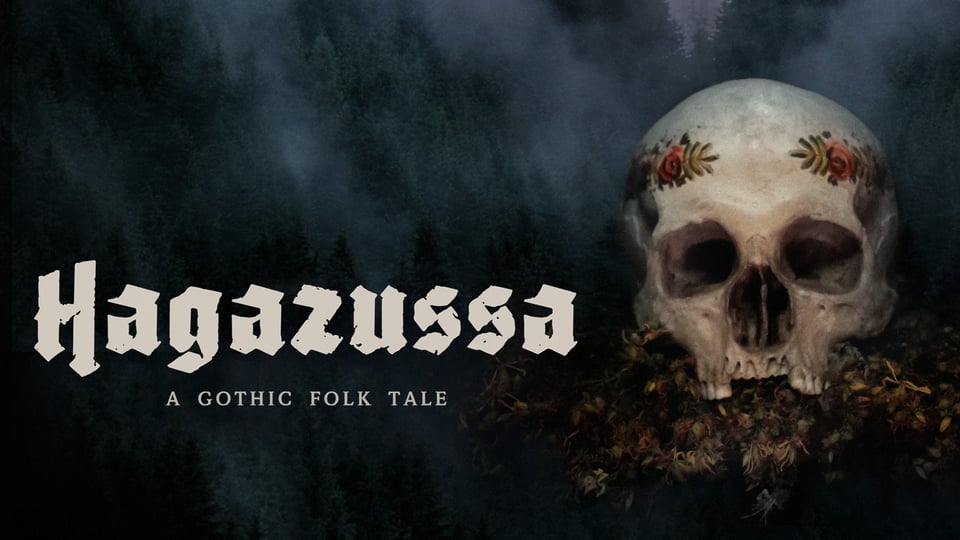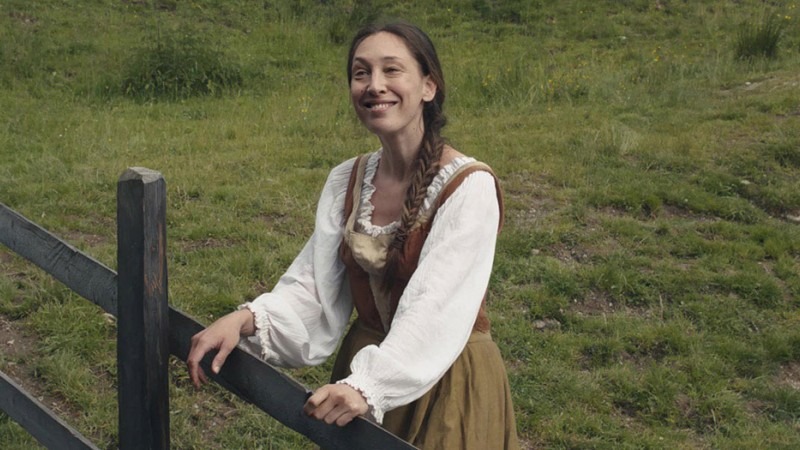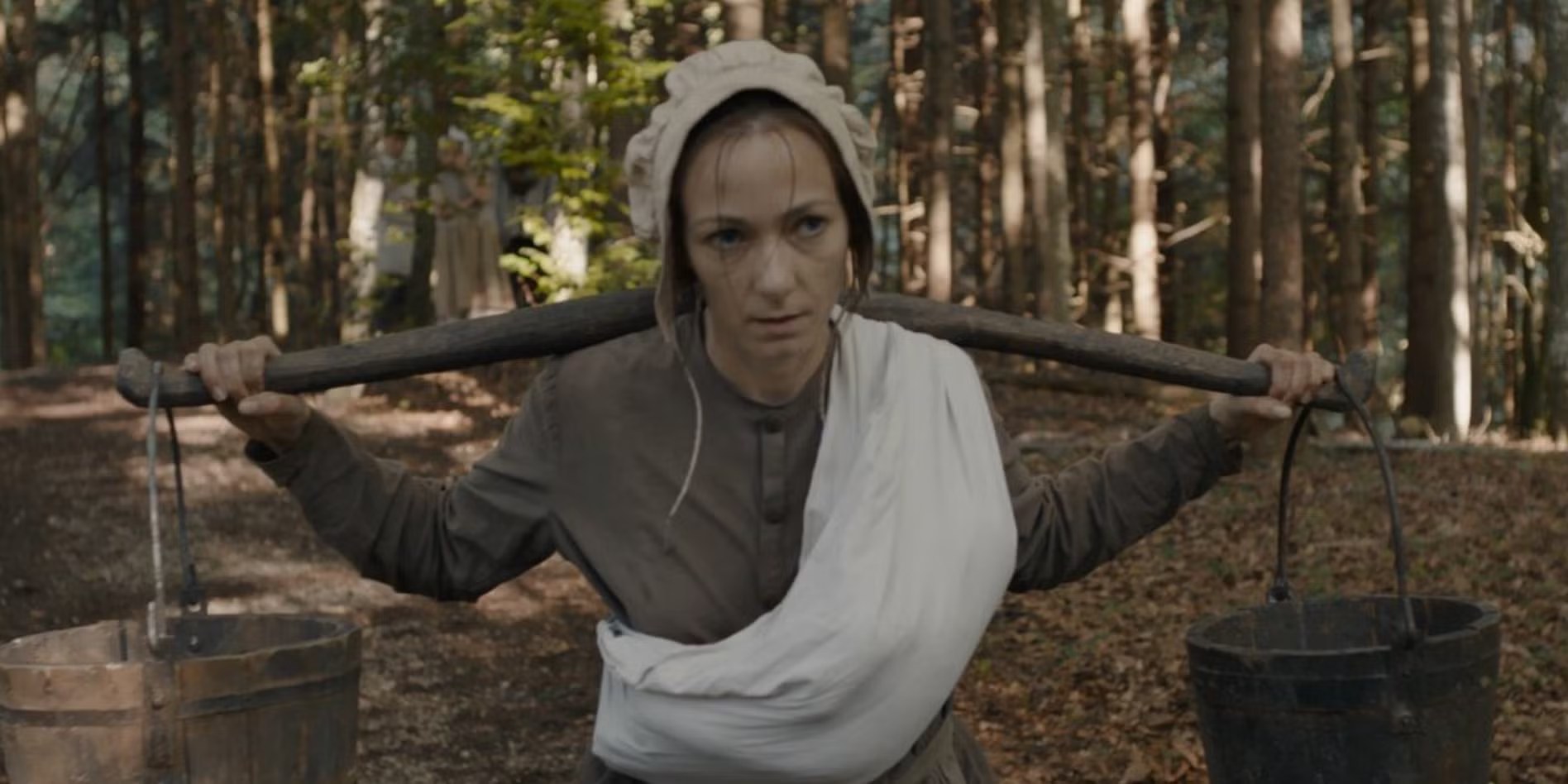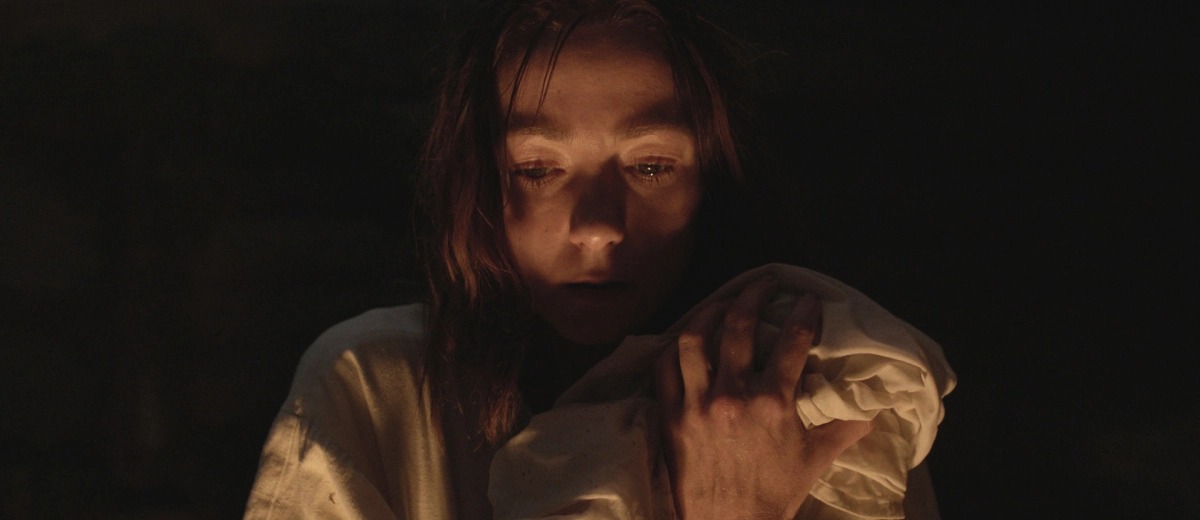Hagazussa: A Heathen’s Curse (2017)

Hagazussa: A Heathen’s Curse (2017) is a slow-burn psychological horror film directed and written by Lukas Feigelfeld in his feature film debut. This German-Austrian co-production offers a chilling and atmospheric exploration of witchcraft, isolation, and the human psyche. Set in the 15th century, the film follows the story of a young woman named Albrun (played by Aleksandra Cwen), who lives in a remote Alpine village and is tormented by the dark legacy of her mother’s reputation as a witch. With its minimalist style and haunting imagery, Hagazussa invites viewers into a world of dread and superstition, where the line between reality and madness becomes increasingly difficult to discern.
The film opens with a grim depiction of Albrun’s childhood, where she is isolated and shunned by the villagers due to her mother’s association with witchcraft. Albrun’s mother is ostracized for practicing dark arts, and her early death leaves Albrun to fend for herself in the same lonely and hostile environment. As Albrun grows into adulthood, the weight of her mother’s curse seems to hang over her, and the villagers continue to treat her with fear and suspicion. Despite this, Albrun remains a silent observer, tending to her simple farm life, until a strange and disturbing series of events leads her to question her own identity and her connection to the occult.
Lukas Feigelfeld’s direction in Hagazussa is deliberately slow and contemplative, creating a deeply unsettling atmosphere that mirrors the protagonist’s growing paranoia and isolation. The film moves at a measured pace, allowing the tension to slowly build as Albrun’s mental state deteriorates. Feigelfeld utilizes long, lingering shots of the natural landscape, emphasizing the vast and oppressive beauty of the Alpine wilderness. This isolation not only reflects the physical separation of the characters from society but also serves as a metaphor for Albrun’s emotional and psychological alienation. The landscape becomes a character in itself, both beautiful and menacing, as it seems to mirror the darkness that is slowly consuming Albrun.
The film’s atmosphere is further enriched by its stunning cinematography and haunting sound design. The bleak, snow-covered landscapes of the Alps are captured with a sense of desolation, enhancing the feeling of confinement that Albrun experiences. The sound design is sparse but impactful, with eerie noises and the natural sounds of the environment heightening the sense of unease. The use of sound, combined with the film’s minimal dialogue, creates a pervasive sense of dread, as the viewer is left to interpret Albrun’s experiences through visual and auditory cues. This approach intensifies the psychological horror aspect of the film, as the audience is immersed in Albrun’s deteriorating mental state.

Aleksandra Cwen delivers a haunting performance as Albrun, capturing the character’s internal struggle with subtlety and depth. Albrun is portrayed as a woman who is both a victim of her circumstances and someone who is becoming increasingly complicit in the dark forces around her. Cwen’s portrayal allows the audience to sympathize with Albrun, even as her actions become more disturbing and ambiguous. The film’s minimal cast ensures that Albrun remains at the center of the story, with the supporting characters acting as shadows that reflect her inner turmoil and the hostile world she inhabits.

At its core, Hagazussa is a meditation on the themes of witchcraft, fear, and societal rejection. The film explores the idea of the witch as both a victim and a villain, highlighting the way society can demonize those who do not conform to its expectations. Albrun’s journey is both a literal and metaphorical descent into madness, as she becomes increasingly drawn to the occult and begins to believe in the supernatural power that her mother once wielded. The film does not provide easy answers but instead invites the audience to confront the ambiguity of Albrun’s experiences. Is she truly being cursed, or is her descent into darkness the result of her own psychological breakdown?

In conclusion, Hagazussa: A Heathen’s Curse (2017) is a haunting and thought-provoking horror film that delves into the themes of isolation, witchcraft, and psychological torment. Lukas Feigelfeld’s direction and the film’s stunning cinematography create an eerie atmosphere that lingers long after the credits roll. The slow pacing and minimalist style may not appeal to all viewers, but for those who appreciate atmospheric horror, Hagazussa is a chilling and unforgettable experience. It is a film that challenges the audience to question what is real and what is imagined, making it a standout entry in the genre of psychological horror.











